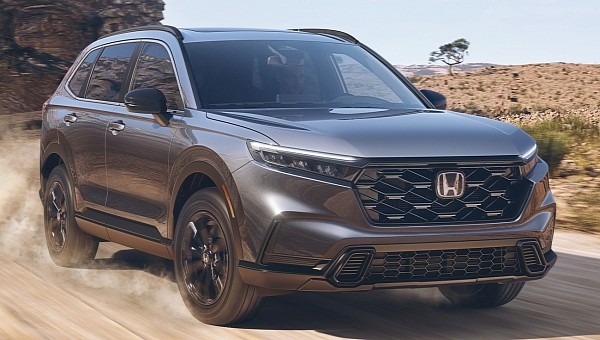The world is slowly moving from fossil fuels to more reliable and sustainable energy sources. Tesla might have made the first move, but the race to reduce carbon emissions and improve mobility efficiency is currently an industry game – and Japanese automaker Honda in collaboration with General Motors is making next-level moves with its hydrogen fuel cell systems.
During a press conference on Thursday, the Honda Civic automaker said it is not only looking to expand its electric fleet but also aims to increase the use of hydrogen as energy, expanding its business.
Hydrogen energy has been touted as a viable solution to tackling global warming. Hydrogen fuel cells produce electricity via a chemical reaction between oxygen and hydrogen (across an electrochemical cell identical to that of a battery) without carbon dioxide emissions.
Its next-level energy carrier, co-developed with General Motors since 2013, is expected to more than double its durability and, as a result, reduce the cost to one-third.
Typically, the cost and durability are viewed as inevitable challenges. However, Honda's next-generation fuel cell system leverages both automakers' knowledge, know-how, and economies of scale, reducing the total cost to one-third compared to the cost of a fuel cell system four years ago.
The Japanese auto manufacturer is looking to expand its next-generation energy system to power its fleet (FCEVs/Fuel Cell Electric vehicles) and other commercial automobiles.
Due to its unique characteristics, hydrogen can store and transport energy at high density and fill a tank relatively quicker. Therefore, this fuel cell is expected to be a more effective power source for commercial and large-size mobility products.
Additionally, several units of the fuel cell systems can be connected in parallel for higher energy output.
Honda plans to start selling its hydrogen fuel cell systems co-developed with GM externally for automobiles in the mid-2020s. The initial plan is set for 2,000 units per year, with a plan to gradually expand to 60,000 units by 2030.
The Honda Civic automaker, in 2024, will also launch an FCEV model in North America and Japan running on the next-level system.
The new FCEV will be based on the automaker's Honda CR-V model introduced into the North American market in 2022. Apart from offering the convenience of long-distance travel (with short refueling cycles), the all-new Honda FCEV will have a plug-in function, a bonus operation of EVs which can be recharged at home.
That's not all. The Japanese automaker has plans to begin demonstration testing of a fuel-cell-powered, heavy-duty truck on public roads in collaboration with Isuzu Motors Limited, before the end of 2024.
Two years ago, like many leading automakers, Honda publicly announced that it would stop selling gas-powered vehicles (including hybrids) worldwide by 2040.
Hydrogen energy has been touted as a viable solution to tackling global warming. Hydrogen fuel cells produce electricity via a chemical reaction between oxygen and hydrogen (across an electrochemical cell identical to that of a battery) without carbon dioxide emissions.
Its next-level energy carrier, co-developed with General Motors since 2013, is expected to more than double its durability and, as a result, reduce the cost to one-third.
Typically, the cost and durability are viewed as inevitable challenges. However, Honda's next-generation fuel cell system leverages both automakers' knowledge, know-how, and economies of scale, reducing the total cost to one-third compared to the cost of a fuel cell system four years ago.
The Japanese auto manufacturer is looking to expand its next-generation energy system to power its fleet (FCEVs/Fuel Cell Electric vehicles) and other commercial automobiles.
Due to its unique characteristics, hydrogen can store and transport energy at high density and fill a tank relatively quicker. Therefore, this fuel cell is expected to be a more effective power source for commercial and large-size mobility products.
Additionally, several units of the fuel cell systems can be connected in parallel for higher energy output.
Honda plans to start selling its hydrogen fuel cell systems co-developed with GM externally for automobiles in the mid-2020s. The initial plan is set for 2,000 units per year, with a plan to gradually expand to 60,000 units by 2030.
The Honda Civic automaker, in 2024, will also launch an FCEV model in North America and Japan running on the next-level system.
The new FCEV will be based on the automaker's Honda CR-V model introduced into the North American market in 2022. Apart from offering the convenience of long-distance travel (with short refueling cycles), the all-new Honda FCEV will have a plug-in function, a bonus operation of EVs which can be recharged at home.
That's not all. The Japanese automaker has plans to begin demonstration testing of a fuel-cell-powered, heavy-duty truck on public roads in collaboration with Isuzu Motors Limited, before the end of 2024.
Two years ago, like many leading automakers, Honda publicly announced that it would stop selling gas-powered vehicles (including hybrids) worldwide by 2040.






